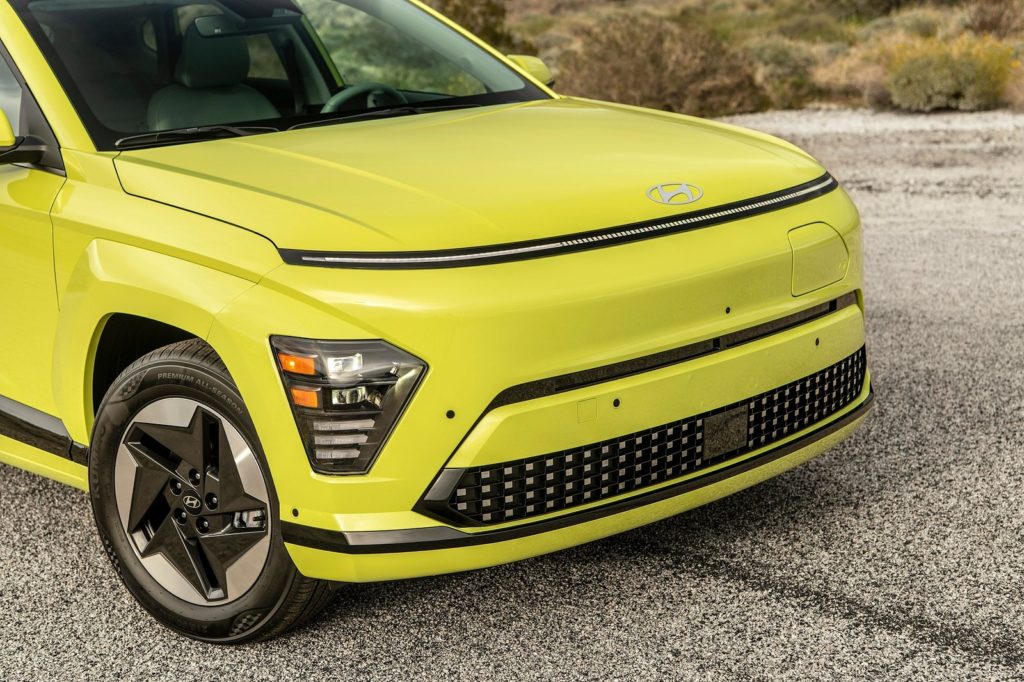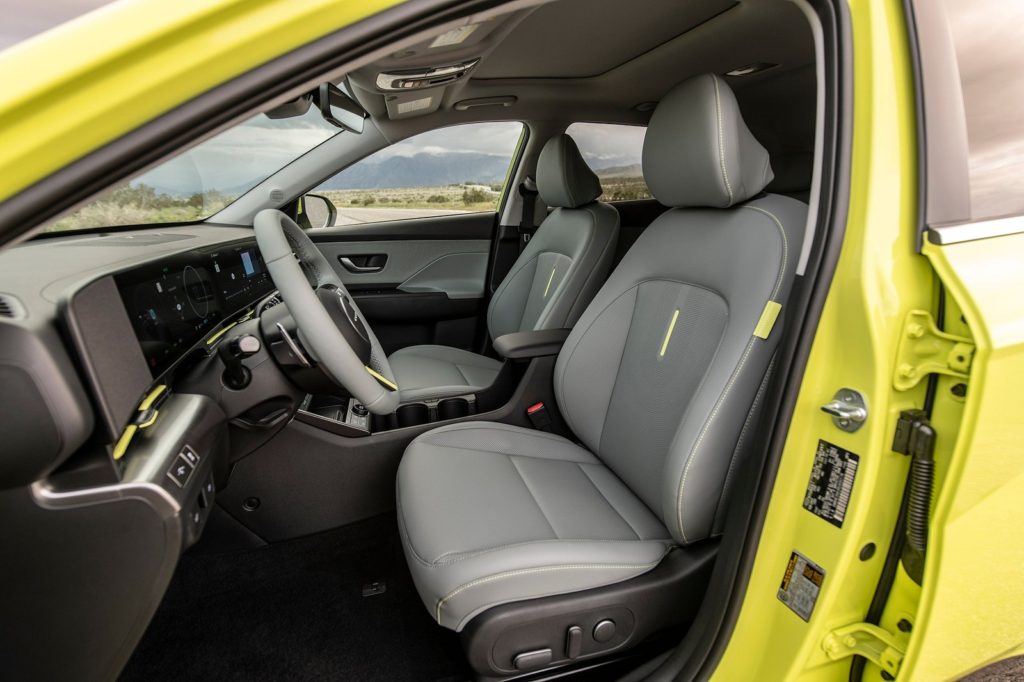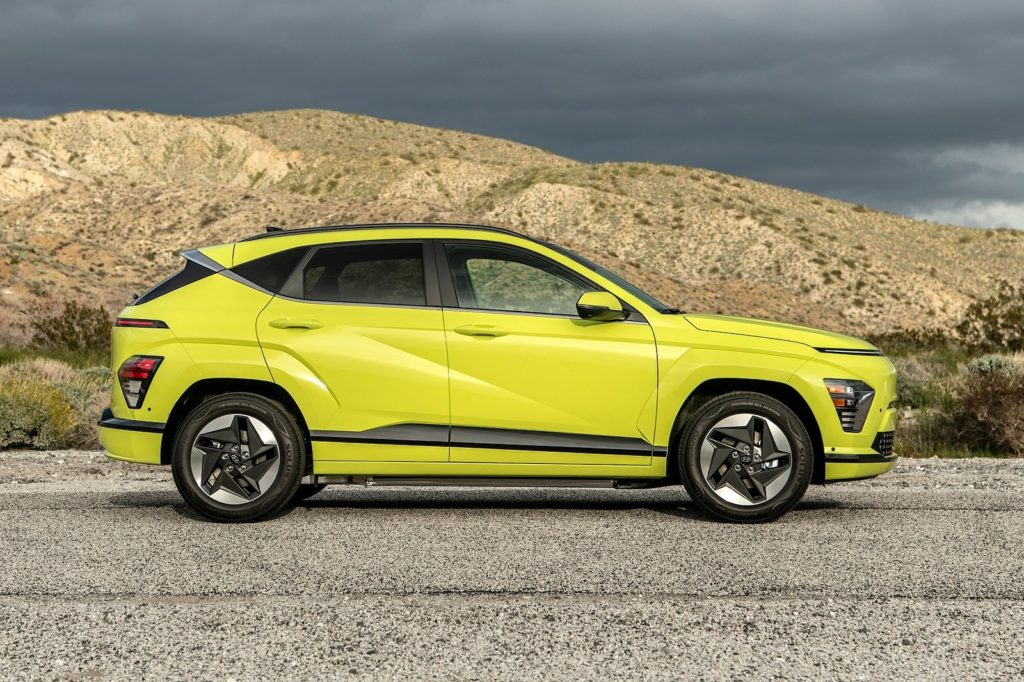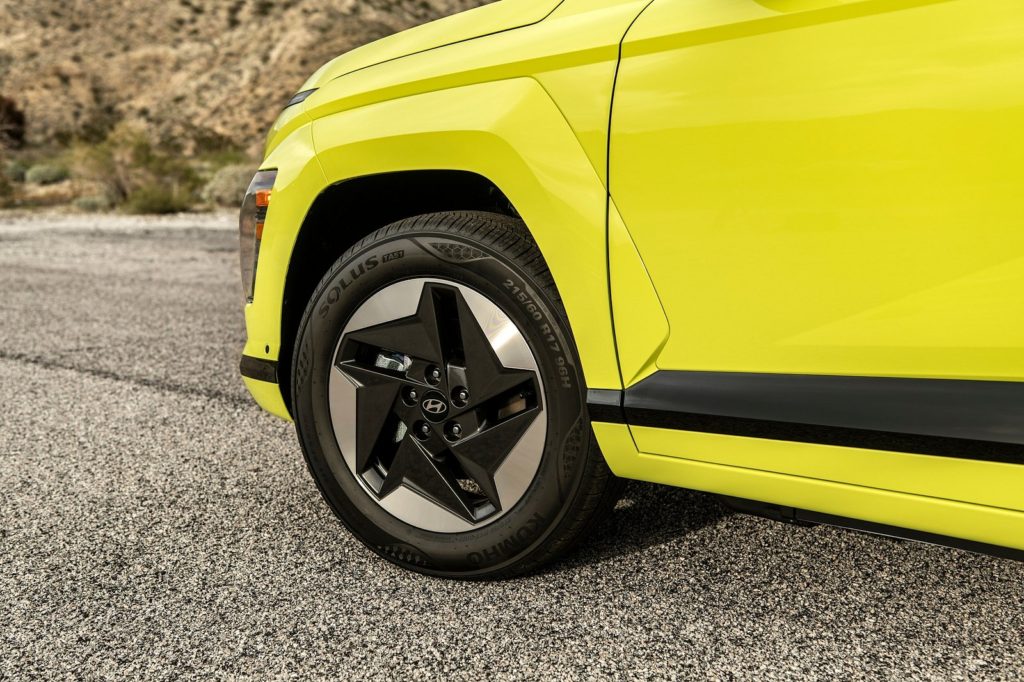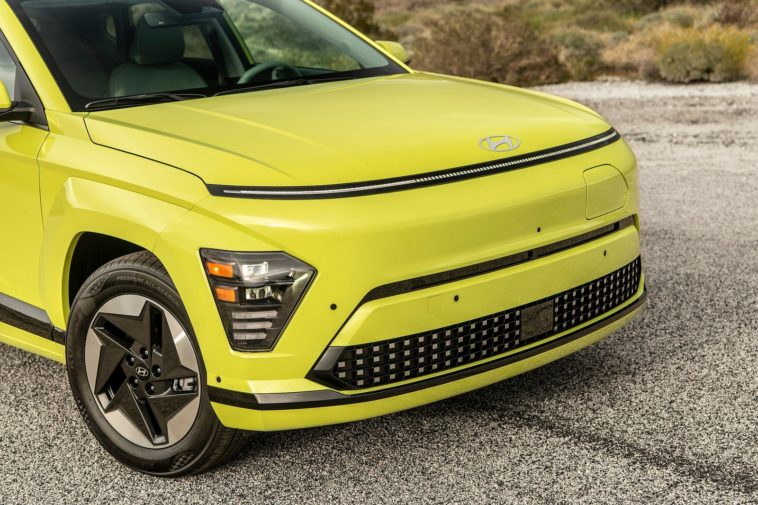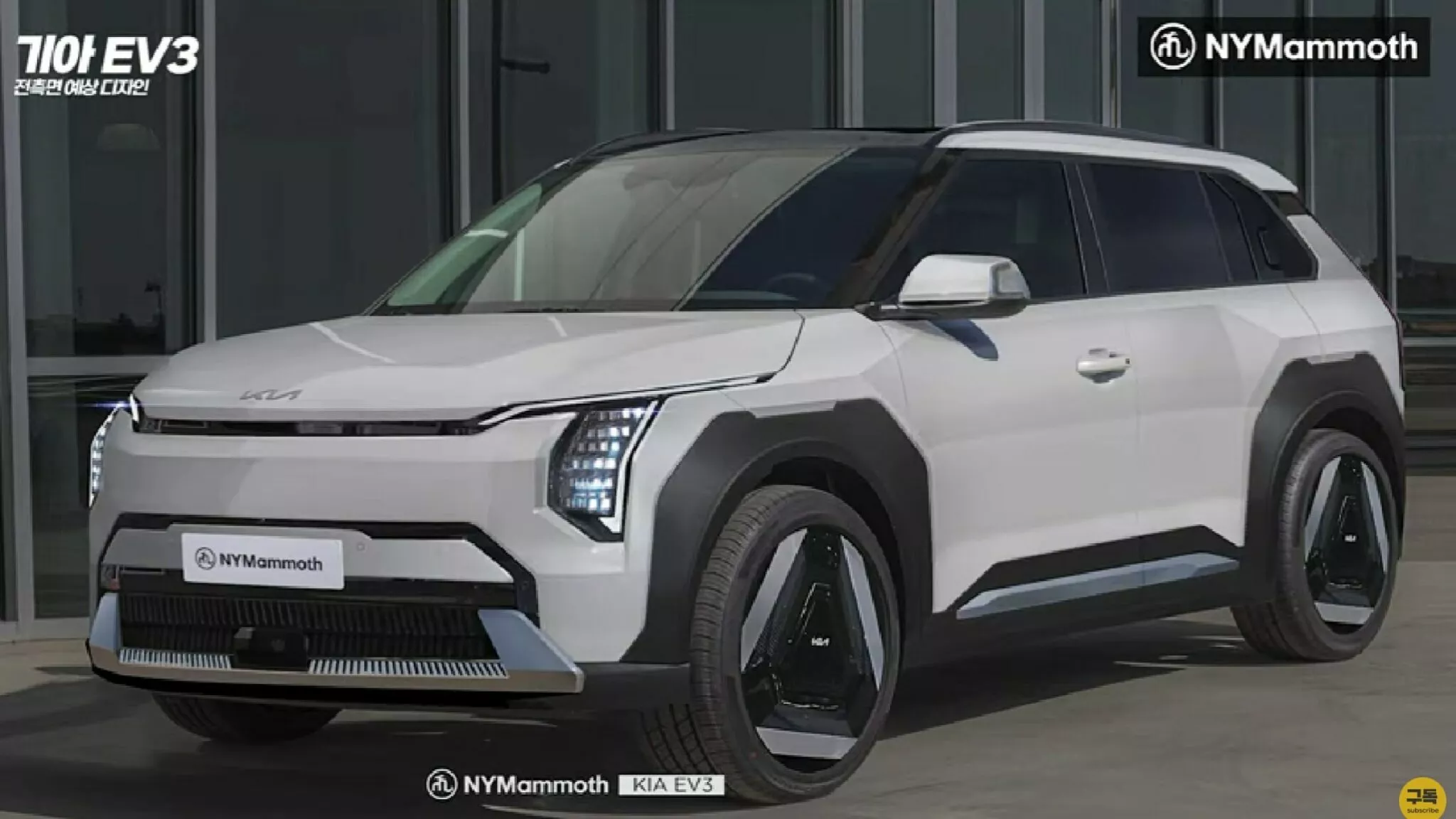Hyundai has recently unveiled the much-anticipated 2024 Hyundai Kona EV in the US, a nice yet controversial car that has caused quite a stir in the automotive world. One of the features is its groundbreaking dual battery lineup. Let’s explore the details and find out why this new Kona Electric model is generating excitement.
Offering Flexibility with Two Battery Options
In a move that showcases Hyundai‘s innovation, the company now provides two battery choices for the 2024 Kona Electric. The first option is equipped with a 48.6kilowatt battery while the second offers a 64.8 kWh battery. This marks the departure from the previous model which only had a 64kWh battery option. With two options for the new model, consumers are given the freedom to choose what suits them best.
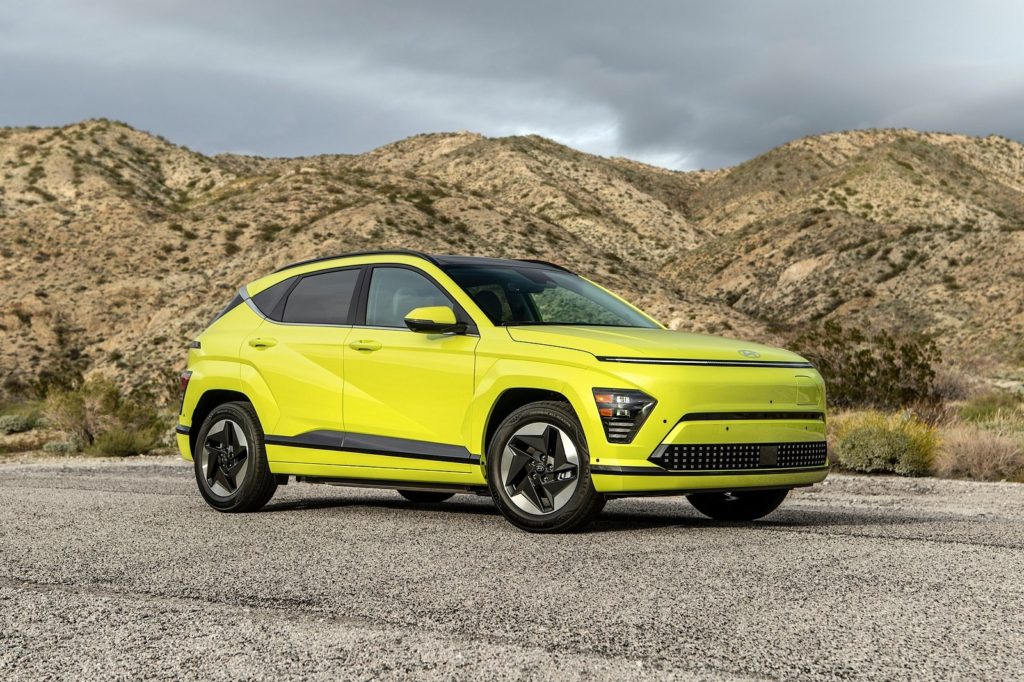
Surprising Pricing Strategy
The pricing strategy for the 2024 Kona Electric may raise some eyebrows due to its dynamics. The entry-level SE model with the standard 48.6 kWH battery is priced at $32,675, which is $875 less than its predecessor with a larger battery capacity. On the other hand, opting for the SEL variant featuring the 64.8 kWh battery comes with a higher price tag starting at $36,675 – an increase of $3,125 compared to previous models equipped with bigger batteries. This pricing decision has sparked debates among enthusiasts who question whether it justifies paying more for reduced range and power in the SE version.
Exploring EPA Range Ratings
One standout feature of the 64.8 kWh battery version is its EPA range rating of 261 miles. On the other side, there is an anticipation that the 48.6 kWh battery version, which has not been officially listed yet, will be able to cover a distance of 200 miles. This means that the SEL model not only will come with a higher price tag but will also offer a significant improvement in its expected EPA range, surpassing it by over 30%.
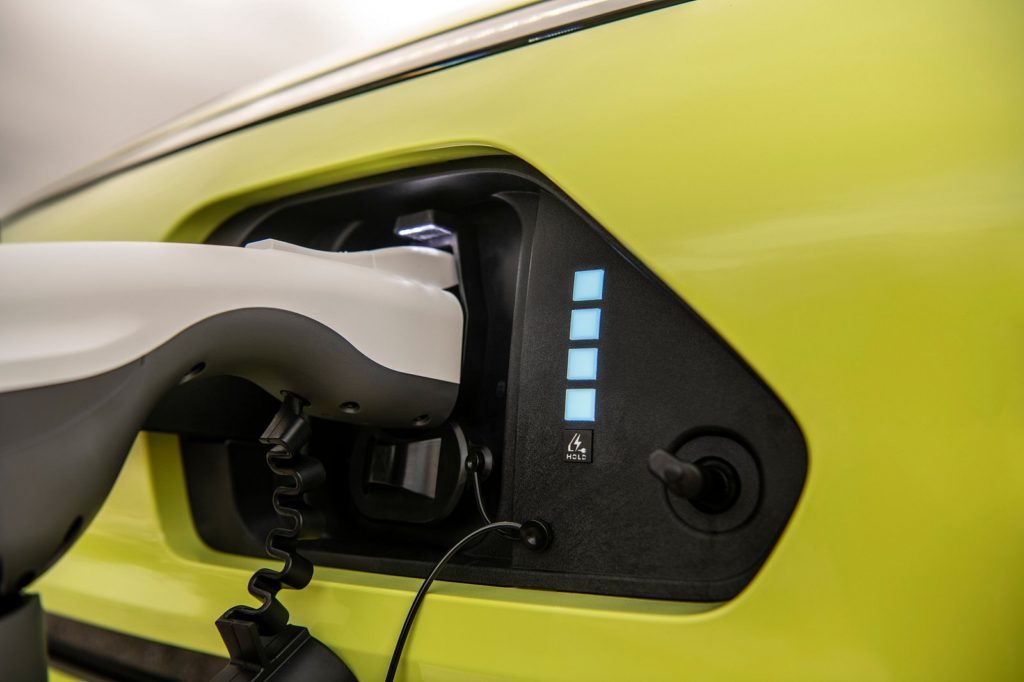
Choosing Between SE and SEL – Is it Worth Upgrading?
For those who are torn between the SE and SEL models their decision may ultimately depend on their budget and priorities. While the SEL comes for $36,675 it boasts a larger battery capacity, substantial enhancement in EPA range performance, and increased power output. Furthermore, the SEL offers features such as privacy glass, roof side rails, a leather-wrapped steering wheel a power driver’s seat with two-way lumbar support, and heated front seats. All these make the SEL variant a choice for individuals seeking a comprehensive package.
SE Trim – A Quick Look
The SE base trim comes with a smaller 48.6 kWh battery, which allows for a driving range of 197 miles. It has a motor in the front axle that generates 133 horsepower and 188 lb-ft of torque. Charging the battery takes over five hours with an onboard charger of 11 kW making it convenient for commutes.
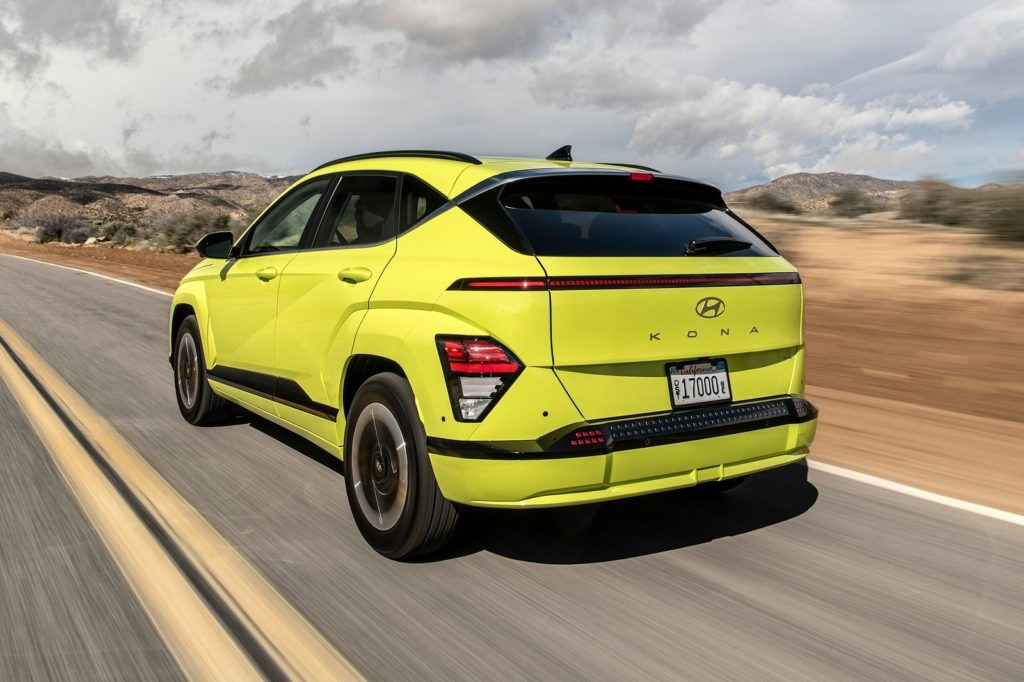
SEL Trim – Increased Power and Range
If you choose the SEL trim you’ll get power and range for $4,000 more, bringing the price to $36,675. This upgrade includes a 64.8 kWh battery that offers up to 261 miles of driving range. With a horsepower rating of 201 and the amount of torque as before, the SEL trim provides a boost in performance. Also, the Level 2 charging speed takes six hours and 14 minutes catering to those who have higher budgets and performance expectations.
Luxury Upgrade – Limited Trim priced at $41,045
For those seeking luxury features, there is also the Limited trim available at $41,045. With its premium additions, this trim level offers buyers a package for those who are willing to invest in a more upscale electric driving experience.
Size Matters – Enhanced Dimensions
As part of its facelift for the year 2024, the Kona Electric has undergone a growth in size by six inches compared to its predecessor.
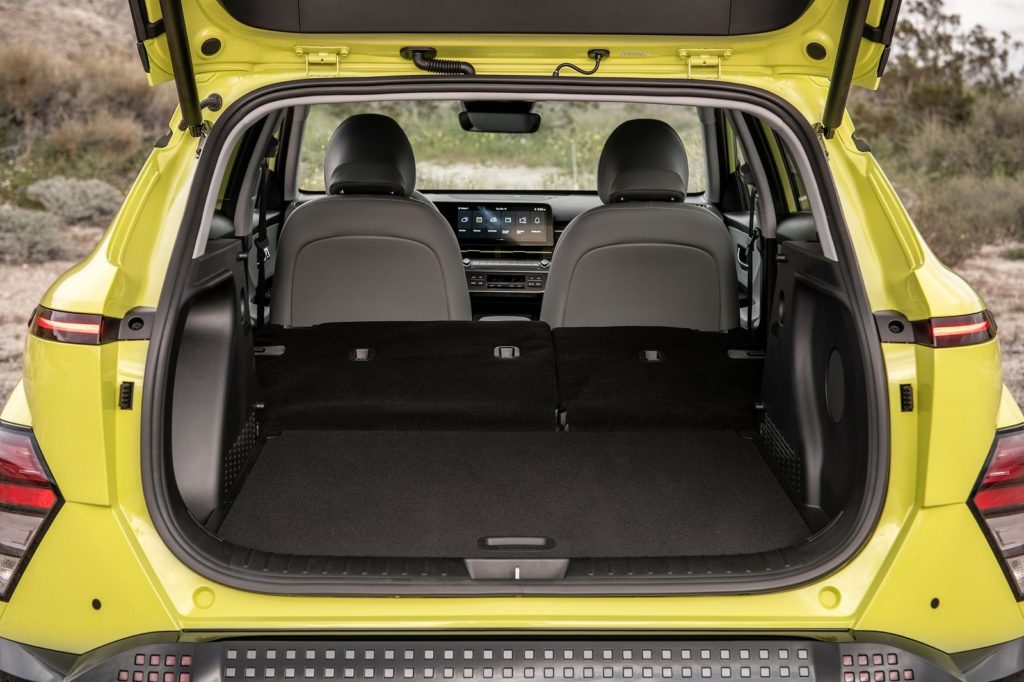
This means that there are three inches of legroom in the back and a 33% increase in cargo space. These improved dimensions make the Kona Electric a practical option for families or individuals who value space.
Technological Advancements – Two 12.3-inch Screens and More
Inside the car, the Kona Electric showcases two 12.3-inch displays making it the first of its kind among Hyundai Motor Group products. The inclusion of wireless Android Auto and Apple CarPlay adds a touch to its tech features. The introduction of an I mode, which allows for one-pedal driving, enhances the driving experience.
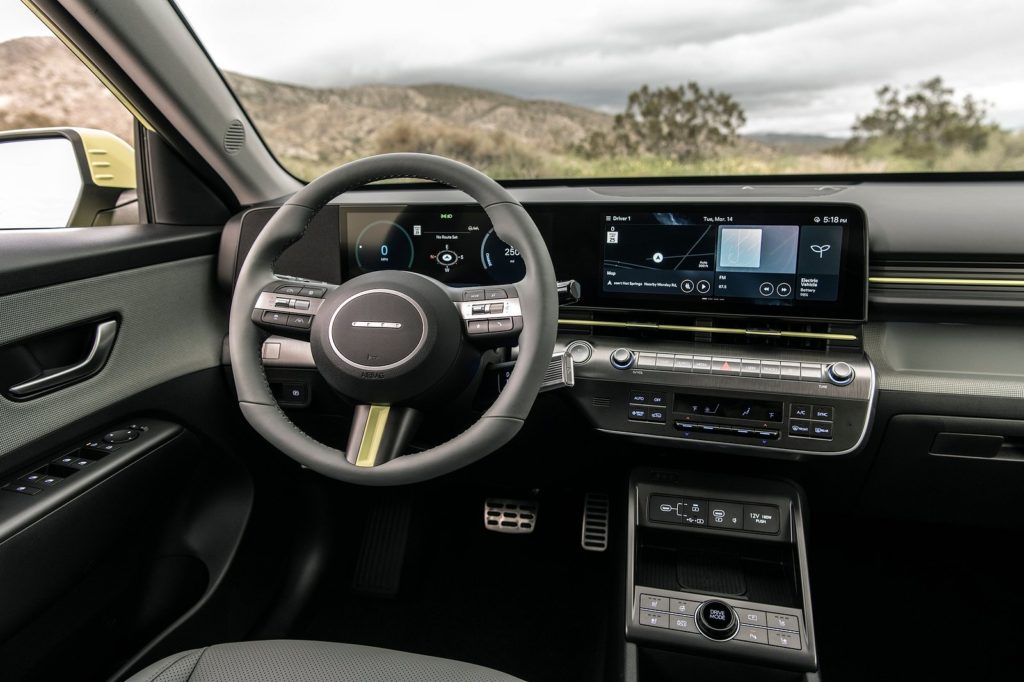
The Final Verdict – Kona Electrics Value Offering
To sum up, the 2024 Hyundai Kona Electric shakes up the electric vehicle market with its dual battery lineup with appealing pricing. While some may question the pricing strategy, especially when it comes to the SE version of the SEL, the new Kona emerges as a choice for those seeking a balance between affordability and enhanced performance. As more people begin to drive the Kona Electric on our roads, it serves as a testament to Hyundai’s commitment to providing affordable electric mobility options while offering a choice, for conscious consumers.
2024 Hyundai Kona Electric – Full Prices
| Model | Base Price | Dest. Charge | Tax Credit | Effective Price |
| 2023 Hyundai Kona Electric (64 kWh) 17-inch | $33,550 | +$1,335 | N/A | $34,885 |
| 2024 Hyundai Kona Electric SE (48.6 kWh) 17-inch | $32,675 | +$1,335 | N/A | $34,010 |
| 2024 Hyundai Kona Electric SEL (64.8 kWh) 17-inch | $36,675 | +$1,335 | N/A | $38,010 |
| 2024 Hyundai Kona Electric Limited (64.8 kWh) 17-in | $41,045 | +$1,335 | N/A | $42,380 |
2024 Hyundai Kona Electric – Basic specs
| Model | Drive | Battery (kWh) | EPA Range |
| 2023 Hyundai Kona Electric (64 kWh) 17-inch | FWD | 64 | 258 mi |
| 2024 Hyundai Kona Electric SE (48.6 kWh) 17-inch | FWD | 48.6 | 200 mi* |
| 2024 Hyundai Kona Electric SEL (64.8 kWh) 17-inch | FWD | 64.8 | 261 mi |
| 2024 Hyundai Kona Electric Limited (64.8 kWh) 17-inch | FWD | 64.8 | 261 mi |
* according to the manufacturer
| EV Comparison Side-by-Side by InsideEVs | |||
| Model | 2024 Hyundai Kona Electric SEL (64.8 kWh) 17-inch [A] | Difference [A] / [B] | 2024 Hyundai Kona Electric SE (48.6 kWh) 17-inch [B] |
| Drive | FWD | FWD | |
| Battery | 64.8 kWh | 33.3% | 48.6 kWh |
| EPA Range | |||
| Combined | 261 mi | 30.5% | 200 mi* |
| Specs | |||
| Peak power | 150 kW | 51.5% | 99 kW |
| EPA Energy Consumption (including charging losses) | |||
| Combined | 116 MPGe: 291 Wh/mi | ||
| City | 129 MPGe: 261 Wh/mi | ||
| Highway | 103 MPGe: 327 Wh/mi | ||
| Charging | |||
| AC | On-board charger: 10.8 kW Info: 0-100% SOC in 6 h and 5 min | On-board charger: 10.8 kW Info: 0-100% SOC in 5 h and 2 min | |
| DC | Peak charging power: 100 kW Info: 10-80% SOC in 43 minutes | Peak charging power: 100 kW Info: 10-80% SOC in 43 minutes | |
| Prices | |||
| MSRP | $36,675 | 12.2% | $32,675 |
| Dest. Charge | +$1,335 | +$1,335 | |
| Tax Credit | N/A | N/A | |
| Effective Price | $38,010 | 11.8% | $34,010 |
Source: insideevs.com
2024 Hyundai Kona EV Media Gallery



